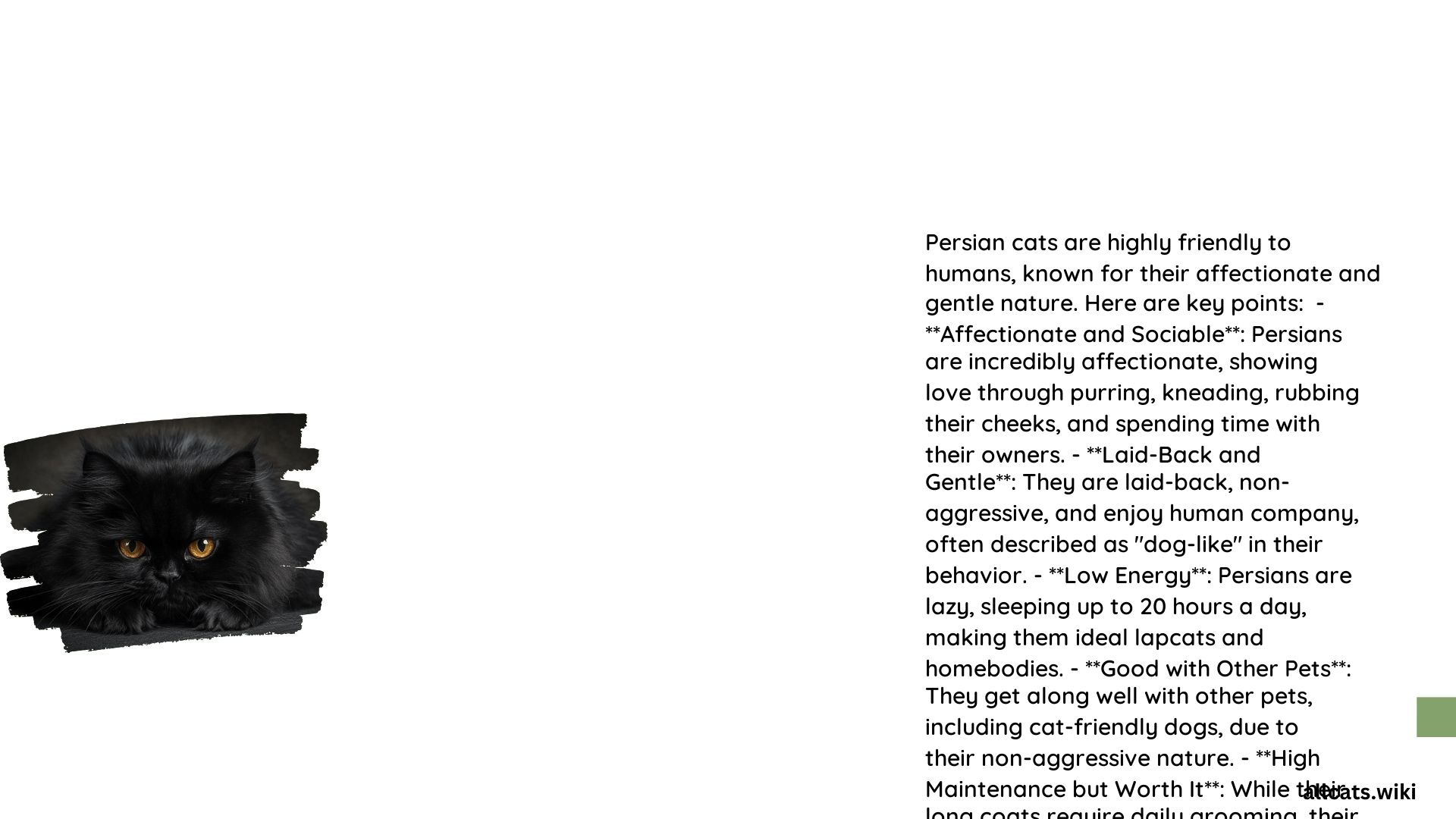Persian cats are generally known for their friendly and affectionate nature towards humans. Their sweet, gentle, and patient personalities make them adaptable to various household settings, and they often seek out human interaction, enjoying the company of their owners.
What Behaviors and Traits Contribute to the Friendliness of Persian Cats?

Sweet and Gentle Nature
Persian cats are described as having a sweet, gentle, and patient personality. They prefer calm environments and are rarely aggressive, making them a great fit for families and households with other pets.
Affectionate
Persian cats are highly affectionate and enjoy human company. They often seek out their owners and are happy to curl up in their lap.
Laid-Back and Mellow
The laid-back and mellow personality of Persian cats means they are almost never aggressive, further contributing to their friendly nature.
Vocalization
While generally quiet, Persian cats do vocalize to communicate with their owners, which can strengthen the bond between the cat and human.
How Does Diet Influence the Temperament and Friendliness of Persian Cats?

Recommended Foods
Feeding high-quality, protein-rich commercial cat food is crucial for Persian cats. Food specifically formulated for their breed can help manage issues related to their flat face and long hair, such as Royal Canin Persian food.
Avoiding Overfeeding
Since Persian cats can become overweight, especially after spaying or neutering, it is important to monitor their food intake to maintain their health and prevent behavioral issues related to obesity.
What Human Foods are Safe for Persian Cats?
Safe Human Foods
While it is generally recommended to stick to commercial cat food, some human foods can be safe and beneficial for Persian cats in moderation:
- Cooked Chicken or Fish (boneless and without seasonings or oils)
- Plain Yogurt
Toxic Foods to Avoid
It is crucial to avoid giving Persian cats toxic foods like onions, garlic, chocolate, or grapes, as these can cause serious health issues.
How Compatible are Persian Cats with Children?
Early Socialization
Early socialization of the Persian cat to children is key to ensuring a harmonious relationship. Introducing them at a young age can help the cat become more comfortable and friendly around kids.
Supervision
Always supervise interactions between children and the Persian cat to ensure the cat is not stressed or harmed.
Teaching Children
Educating children on how to handle cats gently and respectfully helps maintain a positive relationship between the Persian cat and the children.
How Does Solitude Impact the Behavior and Friendliness of Persian Cats?
Need for Interaction
Persian cats thrive on human interaction and can become stressed or bored if left alone for extended periods. Regular play and interaction are necessary to keep them happy and friendly.
Grooming and Care
Regular grooming and care routines can help alleviate stress and boredom when Persian cats are left alone for shorter periods.
In conclusion, Persian cats are generally known for their friendly and affectionate nature towards humans. Their sweet, gentle, and patient personalities, combined with their need for human interaction and proper care, make them a great companion for families and households.
References:
- Wikipedia – Persian Cat
- WebMD – What to Know About the Persian Cat
- PetsRadar – 32 Reasons to Love Persian Cats
